DCPA NEWS CENTER
Enjoy the best stories and perspectives from the theatre world today.
Enjoy the best stories and perspectives from the theatre world today.
Since 1995, Women’s History Month has been a time to remember and celebrate the contributions women have made to our history as a nation and society. This year, the Denver Center for the Performing Arts spoke with female members of our executive leadership team to discuss the impact and influence women have had for our organization, the community, and themselves personally. Janice Sinden is the DCPA Chief Executive Officer and President, Gretchen Hollrah is Chief Operating Officer, and Lisa Roebuck is Vice President of Information Technology.
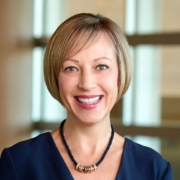
Janice Sinden, President and CEO
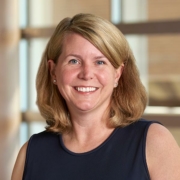
Gretchen Hollrah, COO
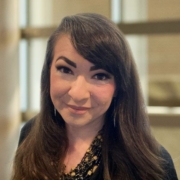
Lisa Roebuck, Vice President of IT
DCPA: Is there a woman from history you find especially inspiring?
Janice: I admire Eleanor Roosevelt who was the longest-serving First Lady throughout her husband President Franklin D. Roosevelt’s four terms in office (1933-1945). She was an American politician, diplomat, and activist who later served as a United Nations spokeswoman. She was a tireless public servant, advocated for humanitarian issues around the globe, and was a staunch supporter of gender equity.
Lisa: This one is hard for me as there have been so many inspirational women throughout history. I think I gravitate toward women who have suffered because I am always so in awe of their bravery. People like Malala Yousafzai or Anne Frank, who lived through just unbelievable atrocities and showed so much strength. I don’t know that I could be so brave in the face of such terrifying circumstances, and their courage and spirit humble me.

DCPA: What women have served as role models for you?
Lisa: For 17 years I worked at a home, school, and treatment center for abused and neglected children, and I would say the clinicians and social workers I worked around every day were huge role models to me. I watched them exhibit so much patience, kindness, genuine curiosity and caring. Day after day they came back to a difficult job with such whole hearts. I learned so much from those women that I use every day in my personal and professional life.
DCPA: What does the phrase “empowered women, empower women” mean to you and how do you live this in your daily life?
Janice: Throughout my life, I have been surrounded by female mentors who have lifted me up, held me accountable, and helped me shoot for the moon personally and professionally. These women include Kim Day, former CEO of DIA; Diane Barrett, former Chief Projects Officer for Denver ,and my colleague and friend, Gretchen Hollrah, DCPA COO. In turn, I feel it is my responsibility to do the same for the women in my life. From participating in the Denver Business Journal’s annual women’s mentorship day, to making philanthropic investments in organizations that support the advancement of women, I am committed to paying it forward.
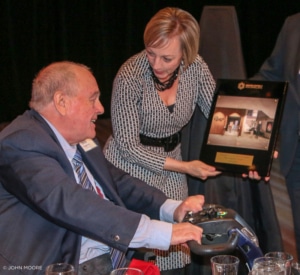
DCPA: What responsibility do you have to mentor future generations of female leaders? How do you act on those responsibilities?
Gretchen: I feel an enormous commitment to support future female leaders. I also consider it to be a two-way street. I want to share the strength and conviction that I have learned in my work and want to better understand from other generations how the world has moved forward since my own early career mentorship lessons.
Lisa: I genuinely and deeply care about the people I lead and mentor, and I understand that everything I do gives them impressions and expectations for their career, for women in [the IT] field, for how they should act and expect to be treated. Whether I like it or not, who I am to these women influences their career and identity in some way, and I want it to be a positive influence. I feel a responsibility to help them feel confident in their skin, to help them avoid the mistakes I’ve made, to help them find their strengths and their voices. I try to be genuine, always; to own up to my mistakes; to acknowledge that I’m not perfect and don’t have all the answers, and to be a leader and a mentor worthy of their trust. If you’re going to mentor, you must be prepared to be constantly learning yourself, and I really try to stay open to those opportunities and lessons.
DCPA: What is a defining moment in your career?
Janice: When I was 34 years old, I became the Executive Director of Colorado Concern, an organization comprised of business and community leaders from across the state who support a strong business environment. At that time, there were no women on the board, yet I was “at the table” where important policy decisions were being developed and implemented that would impact Colorado for decades to come. I also successfully advocated for the first woman to be appointed to the Colorado Concern board, Kay Norton, former President of the University of Northern Colorado, my alma mater (and I am now the Vice Chair of the UNC Board of Directors!). It all comes full circle.
DCPA: Women’s History Month is proclaimed as covering the experience of all women, but in fact, while white women have made great strides toward equality, women of color continue to face additional hurdles. How can we ensure we are amplifying the voices and concerns of these women?
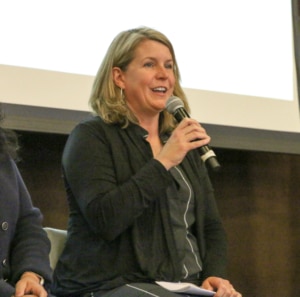
Gretchen: I don’t know this answer yet, but I know that I must continue to ask questions and stay engaged in the conversation. For me, mentorship is a start and so is growing my circle of authentic connections.
Lisa: I think we should ask women of color this question rather than try and answer it for ourselves (as a white woman). How can we help? What should we stop doing? What should we do more of?
DCPA: Why are “firsts” important to note? What barrier breakers have you witnessed in your lifetime?
Gretchen: My grandmother spoke five languages fluently and was a Fulbright scholar at a time when it was unusual for her to work outside of her home. She approached barriers with ease and without apologies, and always with kindness. Her funeral service was full of the caregivers that stayed with her at the end of her life because she treated them with respect – old, young, highly educated, life educated – everyone found a space with her. She didn’t break barriers; she saw past them to honor the individual.
